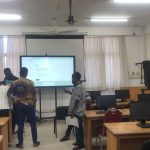Economist Professor Lord Mensah has opined that the first phase of the Planting for Food and Jobs programm did not meet its full potential as supposed.
He made these remarks in relation to the President Nana Akufo-Addo’s launch of the second phase of the Planting for Food and Jobs programme held on August 28th, 2023 at the University of Development Studies (UDS) in Tamale.
In an interview with Univers BusinessNews, Prof. Lord Mensah stated that the first phase of the programme failed to accomplish its aim as food costs have been growing over the years, with food also being a main driver of inflation.
“If you look at our inflation drivers, food is one of them and so if you know the target is being met, then obviously we should have seen the reduction in food prices on the market but here is the case where every now and then, prices of food keeps going up so this tells you that the first phase did not achieve its purpose.”
He also questioned the job opportunities the programme was to provide over the years, as there are few to no jobs available in the current job market.
“I wonder why we are going into a second phase when we struggle to even ascertain the possible impact that the first of the policy has made on Ghanaians…what kind of jobs have been created from that agricultural sector and even with the value chain process of agriculture? Looking at the present job market, how many people can say that [they] have been employed purposely as a result of the Planting for Food and Jobs policy?”
Prof. Mensah additionally recommended that the government undertakes an impact assessment on the programme with more focus on the quality of food staples chosen by Ghanaians.
“Every project has input and output and the outputs are supposed to be measured and measured very well; so every now and then, they may have to look at the impact that the policy is making on the people and the economic numbers in general. They must undertake an impact assessment of the policy instead of spending all the money in hotels building capacity here and there.”
“We may have to also pay attention to the keys staples like maize, yam, plantains and all those crops so that it would not be like a policy that we are throwing out to do anything at all. We should just target typical food that Ghanaians eat, not necessarily looking at exotic food, and that would go a long way to help us in building our agriculture.”
–
Story by : Kuuku Osei-Baidoo | univers.ug.edu.gh




